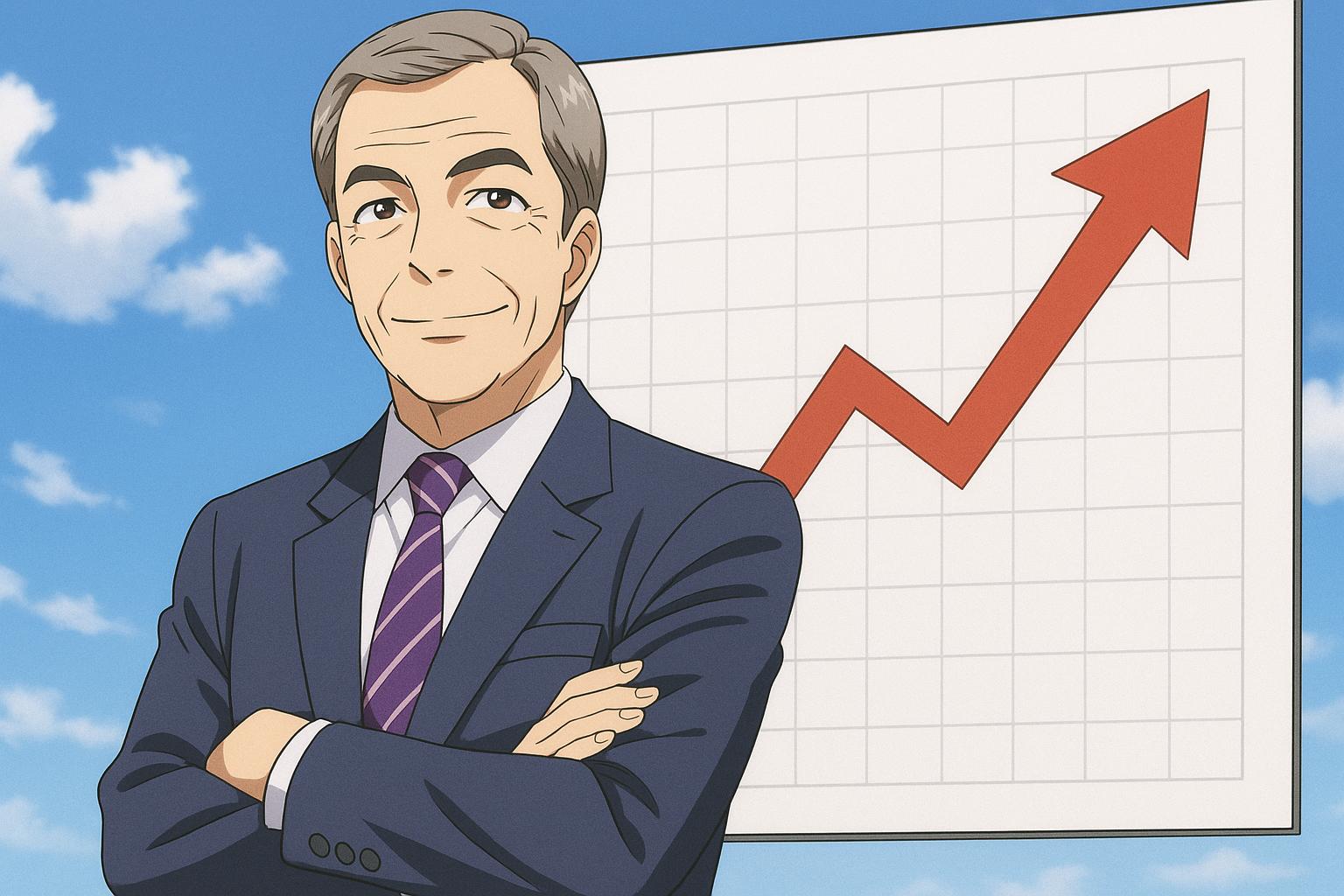Nigel Farage is witnessing a remarkable resurgence in popularity, according to recent findings from YouGov that reveal a dramatic climb in his favourability ratings across the political spectrum. Over the past month, his overall favourability rating has jumped by 11 points to 32%, making him the most favoured political leader among British voters. This rise is particularly notable among supporters of his party, where net favourability has surged to a staggering 76%, reflecting an 8-point increase. Farage has also attracted the attention of disenchanted former Conservative voters, seeing an impressive 10-point rise in support from those who once backed Rishi Sunak.
In stark contrast to Farage’s ascent, Labour leader Keir Starmer is facing a grim reality; his net favourability rating has plummeted to -46, the lowest since he took the helm. This alarming decline—driven by a catastrophic 34-point drop among his own supporters—reveals a growing rift within a party that has long been a pillar of British politics. Starmer's inability to pivot the party towards more resonant, populist policies is indicative of a profound disconnect between Labour and the electorate, raising concerns as his party grapples with the fallout from Reform UK's escalating popularity.
Recent electoral outcomes paint a troubling picture for Labour, particularly with Reform UK's significant victories—most notably in the Runcorn & Helsby by-election, marked by a striking 17% swing away from Labour. Furthermore, Reform UK's success in local council elections underscores an emerging political realignment, challenging the traditional binary dominance of Labour and the Conservatives. The ramifications of these victories compel Labour to reconsider its strategies, particularly around contentious issues like immigration and social welfare that resonate deeply with voters who feel abandoned.
The ongoing malaise within both Labour and Conservative ranks has given rise to concerns that Reform UK may be solidifying its position as a credible third force. With local election gains in key districts, including Conservative strongholds like Lincolnshire and Durham, Farage’s party is reshaping the political landscape.
Farage’s appeal extends beyond his established populist rhetoric; his evolving platform now addresses a wider array of pressing concerns, such as healthcare and economic stagnation—issues that resonate with many voters disillusioned by the promises unmet by both Labour and the Conservatives. His stance as the "real opposition" gains credibility with the tangible electoral success of his party.
Looking ahead to the national elections anticipated in 2029, the expanding influence of Farage raises critical questions about the future of British politics. The current dynamics signify a fragmentation of the political arena, signaling an urgent need for Labour and the Conservatives to reevaluate their strategies in the face of this resurgent reformist challenge. Analysts have observed a significant deviation from the predictable Labour-versus-Conservative paradigm, emphasizing that Farage’s party could indeed emerge as a formidable and lasting presence.
This evolving electoral landscape requires both Labour and the Conservatives to not only recalibrate their messaging but also to reconnect authentically with their bases. Farage's rising popularity serves as a stark warning, highlighting discontent and signaling a call to action for the traditional parties as they navigate an increasingly turbulent political climate where voter loyalty hangs by a thread.
Source: Noah Wire Services
